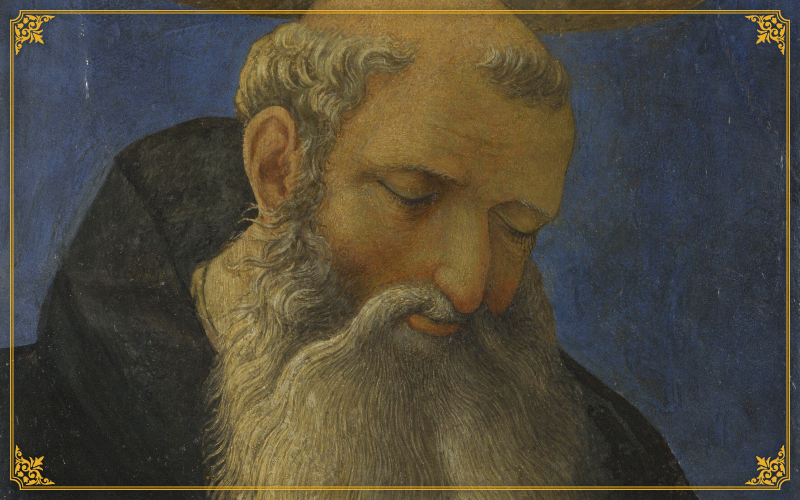Continuing with an overview of Catholic anthropology, we next consider whether memory is an element of the soul and the consequences of memory for a soul pursuing perfection.
Memory and the Sensitive Soul
As previously summarized, memory, intellect, and will are all faculties of the soul (see “Elements of the Human Soul and of the Body, What Are They”). That is, they are all powers (or functions) of the soul. Memory is one of the internal senses and is an aspect of the sensitive soul. It plays a crucial role in retaining and recalling sensory experiences. Memory is closely linked to the imagination. The imagination presents to the mind the images of past experiences, and memory stores these images for future recollection. Memory contributes to the overall functioning of the soul by providing a basis for learning, recognizing patterns, and retaining knowledge of the external world. Since it is an element of the sensitive soul, animals can also have memories.
Two Kinds of Memory
St. Thomas Aquinas distinguished between two kinds of memory: sensory memory and intellectual memory. Sensory memory refers to the initial stage of memory where sensory experiences are stored temporarily before being processed further. This aligns with Aristotle’s concept of the “phantasm,” which is an impression left by a sensory experience. Sensory memory involves the retention of perceptions such as sight, sound, taste, smell, and touch (i.e., those we obtained through one of our five senses).
Intellectual memory, by contrast, involves higher cognitive processes such as understanding, reasoning, and conceptualization. Intellectual memory involves the retention of abstract ideas, concepts, and knowledge acquired through intellectual activities such as thinking, reflecting, and reasoning. Whereas sensory memory deals with raw sensory experiences, intellectual memory deals with processed and abstracted information that has been refined through intellectual activities. This process of intellectual memory is unique to humans while sensory memory may be shared with animals.
Memory Can Be a Means to Grow in Holiness
Why does this matter? St. Thomas taught that memory, in general, is a faculty of the soul that allows mankind to retain past experiences and knowledge, which contributes to his understanding and growth.
When faced with moral decisions, individuals often draw upon past experiences stored in memory to evaluate the potential outcomes and consequences of their actions. For example, it behooves one to have the Ten Commandments firmly memorized so as to be able to recall them promptly and apply them correctly in a concrete situation. Or again, if someone remembers the negative consequences of a past sin, they may be more inclined to resist temptation in a similar situation.
St. Thomas also reiterated that repeated actions leave an imprint on the soul, shaping habits, virtues, and vices. Positive actions reinforce virtuous tendencies, while negative actions strengthen vices. Memory plays a crucial role in this process by storing past experiences and actions, which influence future behavior. For instance, someone who consistently practices selfless acts of kindness will develop the virtue of charity, while someone who frequently engages in acts of deceit will develop the vice of dishonesty.
Teaching children the Faith through beautiful examples creates lasting memories, both sensory and intellectual. This helps anchor a soul in the Faith for life. Yet on the other hand, bad memories (e.g., violence, neglect, chaos, anger, tension, etc.) can have lasting negative impacts that affect a soul for life.
Free will enables mankind to choose between various courses of action, guided by reason and moral principles. Memory informs these choices by providing a repository of past experiences, which individuals can draw upon to make informed decisions. However, free will is not determined solely by past experiences; individuals have the capacity to transcend their past actions and choose differently based on moral reflection and discernment. But a poorly formed memory can be a significant hurdle in the pursuit of holiness.
Conclusion
Parents, priests, and catechists must be especially aware of the impact that memories and experiences can have on one’s faith. Only after great labor (and grace!) are souls converted by the work of apologetics. Yet holy and joyful memories – frequently recalled – readily help one persevere though the great trails of life. Many of the psalms are based upon this reality. The negative contrary is also true: In just a few moments, souls can be lost if they see us living a hypocritical life in contradiction to the Faith we profess. Keep this in mind in all of your actions – no matter how small in public – souls can be lost by scandal. And let us never have this sin on our souls. Memory is indeed a great power of our soul!




